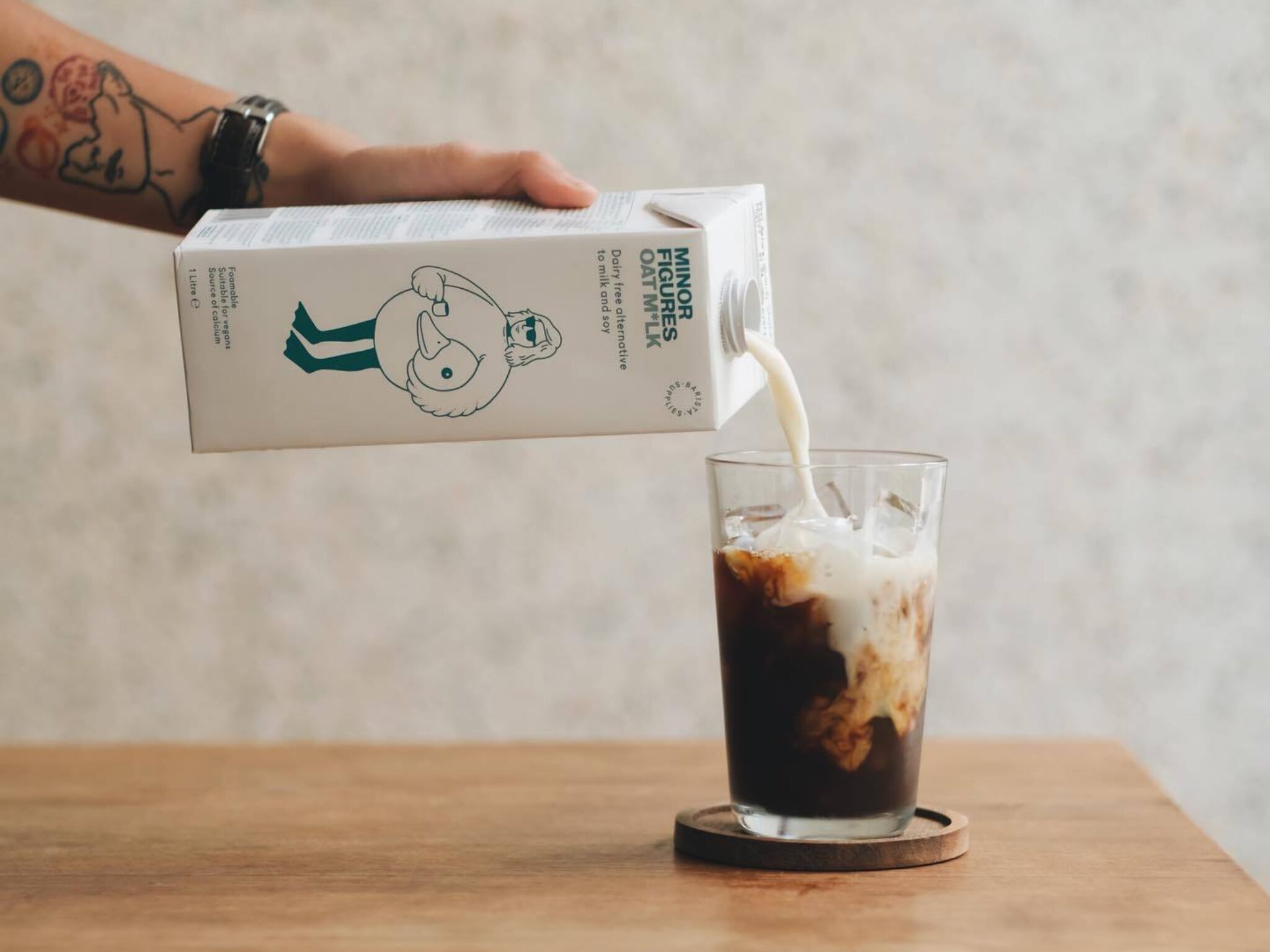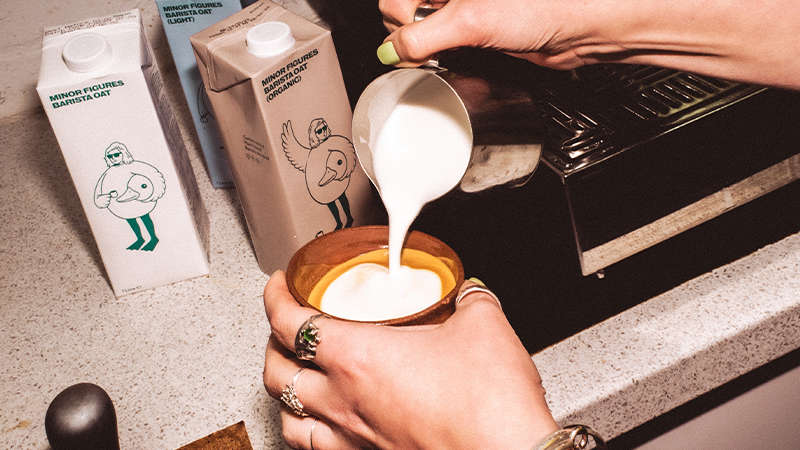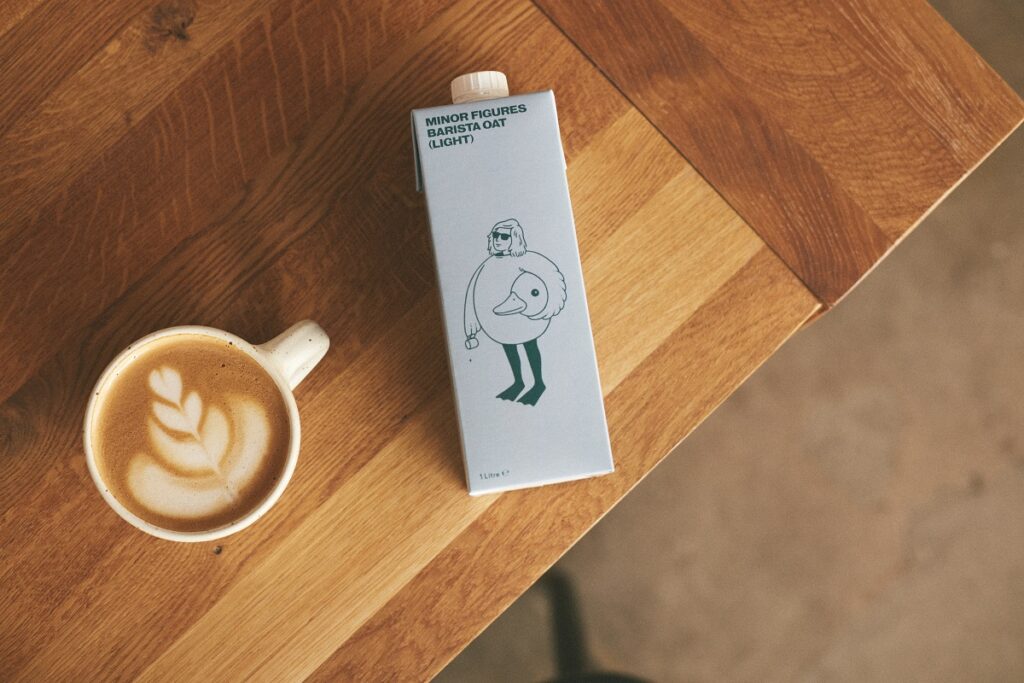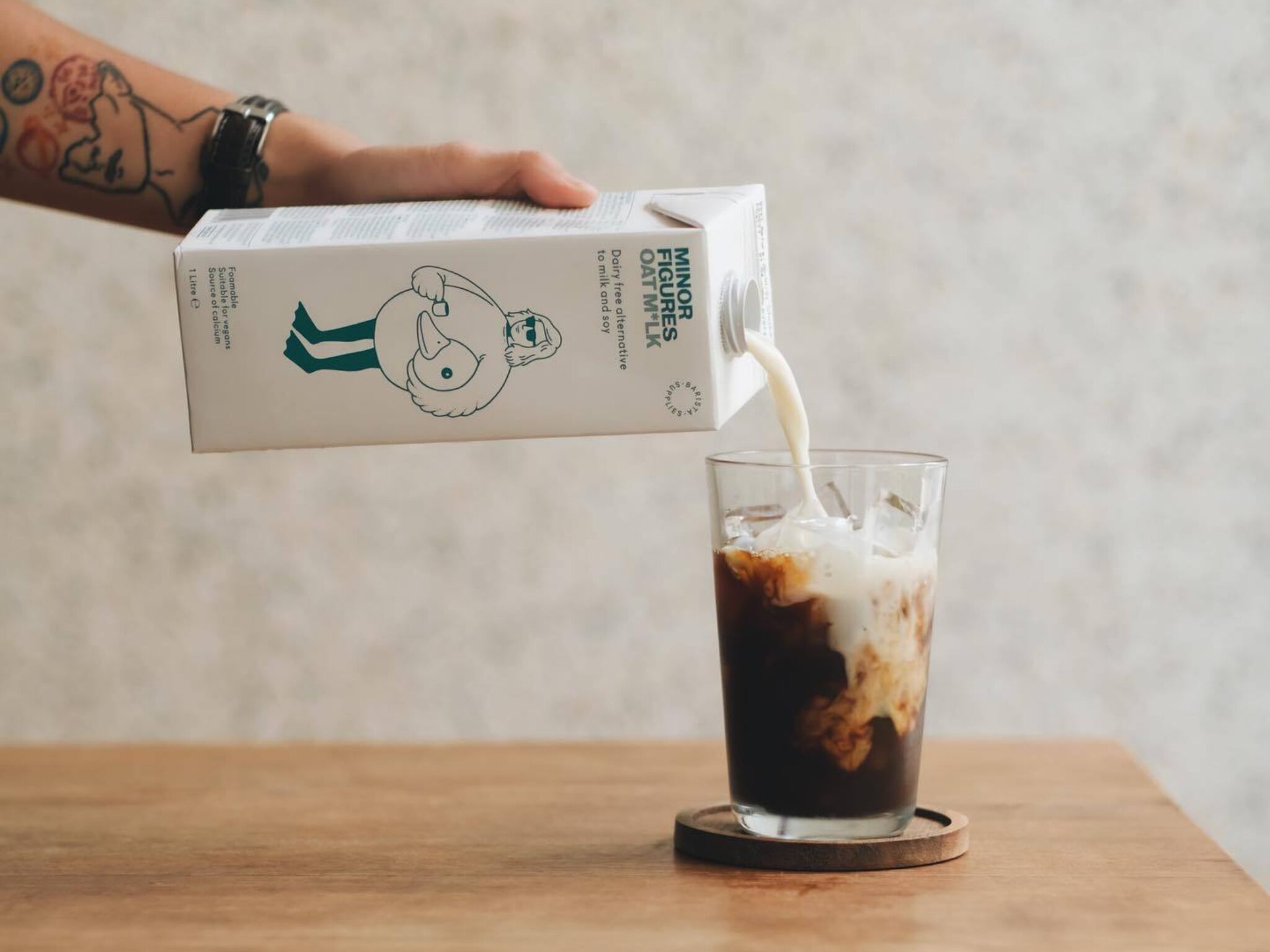
UK oat milk brand Minor Figures saw losses grow to nearly £10M last year, citing inflationary pressures and a downturn in the Asia-Pacific market – but its overall revenues jumped to £31.8M, and the company is now on the path to becoming profitable.
In its newly filed accounts, Minor Figures said its losses widened by 39% to £9.9M in the year ending June 30, 2023, though its revenues increased by 9% to £31.8M following strong growth in its key markets of the UK and North America.
The London-based oat milk maker attributed the losses to continued inflationary pressures on raw materials and the supply chain, and a decline in the Asia-Pacific (APAC) region, which took its cumulative losses to over £20M in the last three years. However, Minor Figures indicated that these challenges have now been addressed by management, with the business turning its attention away from APAC to focus on the UK and North America as it looks to become profitable by 2025.
“Whilst macroeconomic conditions have been challenging, the oat category has continued to grow and the business is strategically focused on revenue growth and market penetration, in order to position itself as one of the top three brands across all major markets in the long term,” the filing reads.
Minor Figures’ Asia struggles mirrored by Oatly
 Courtesy: Minor Figures
Courtesy: Minor FiguresWhile sales fell by 35% to £5.9M in APAC, Minor Figures witnessed a 12% growth in its home market of the UK, reaching £13.4M, while its North American turnover grew by 54% to reach £12.5M.
Speaking to the Grocer, co-founder and CEO Stuart Forsyth said the company made a big bet on the demand for oat milk in Asia, which was booming but has failed to reach its potential post-pandemic. The mistimed investment of capital in the region “massively” magnified the business’s losses in the region.
Forsyth ascribed the APAC difficulties to a downturn in China, where fellow competitor Oatly has also struggled. The Swedish oat milk giant has halted construction of a manufacturing facility in China, with its COO Daniel Ordonez noting it can’t justify “significant investments with uncertain payoffs”. “We will be therefore slowing down on SKU expansion and eliminating many unnecessary SKUs… and migrating to a more simplified cost structure,” he said last year.
The difficulties in China played a part in Oatly’s restructuring last year, and has similarly affected Minor Figures too. While oat milk’s popularity has hiked in China over the last few years, it has also meant a larger number of brands and products offering the coffee-friendly dairy alternative, making it a crowded market with plenty of domestic and international competitors for brands like Minor Figures, which discontinued product lines and wrote off a large amount of stock in 2022-23, leading to one-off costs of £1.5M.
“We responded immediately by reshaping our cost base and refocusing our efforts on increasing product margin,” Forsyth added. “Our efforts have taken time, but resulted in a return to solid margins, and a leaner, more focused business, which is now in a much stronger position.”
The company’s accounts state that its performance in Q1 this year is significantly better than 2023, with Forysth identifying strong double-digit growth and a significant reduction in losses that are setting Minor Figures on the path to profitability.
“The Group has continued to expand in North America and Europe with increasing distribution points across the on-trade, grocery, export and online channels. In a competitive oat milk market, Minor Figures is one the fastest-growing brands in North America and the UK,” the document states. “The brand also has significant distribution in Australia through all major grocery chains.”
This was echoed by Forsyth, who added: “Our growth has continued this year with the EMEA business continuing to outperform in its category and the North American business growth above 38%, with notable wins in some of the biggest retailers, including Whole Foods, Sprouts Farmers Market, Albertsons and, recently, Kroger. All of this is set against the wider context of the Asia-Pacific region now beginning to stabilise post-Covid.”
Overcoming oat’s optics obstacles
 Courtesy: Minor Figures
Courtesy: Minor FiguresLike the wider plant-based industry, milk alternatives have had a dip in market performance over the last year. In the UK, the overall milk market was hit by a fall for alt-dairy leader Alpro, which experienced a 22% drop in volume sales, according to Nielsen data for the Grocer’s Top Products survey for 2023. And even though Oatly saw a modest 0.3% growth in volume – this is a far cry from the 100% increase in sales for oat milk in the UK between 2019 and 2020.
Kantar data shows that UK non-dairy products saw a year-on-year sales decline of 3.8% in January 2024, with an 18.4% higher markup than animal-derived dairy items. Even in the US, gallon sales for plant-based milk fell by 7% in the year ending December 3, 2023, with oat milk witnessing a 0.9% growth.
However, oat milk is currently undergoing a PR challenge, with online influencers and media outlets questioning the health credentials of the product. People have pointed to spikes in blood glucose (which is normal with any food, and oat milk itself usually has a moderate glycemic index), its low protein content (which shouldn’t be an issue considering we’re overconsuming protein anyway), the inclusion of additives like emulsifiers and acidity regulators (which are generally recognised as safe by health bodies and forms part of a wider fear around ultra-processed foods), and its effects on bloating (a claim that doesn’t have much evidence to back it up).
British market research firm Mintel forecasts that once inflationary pressures start to ease, consumer spending will regain momentum and support the growth of plant-based dairy, predicting a rise in retail value sales of 50.2% over the next five years in the UK. (Its current lineup comprises three oat milks, a chai concentrate, and two ready-to-drink canned cold brews.)
Minor Figures, which has brought in over £30M in investment, including a new fundraise in June 2023, is set to announce further retail and foodservice innovations later this year. “2023 is a follow-on investment from the current investor base,” said Forsyth. Its backers include Danone’s VC arm Manifesto Ventures, Hong Kong’s Green Monday. “They were confident in our commitment and vast improvements made to business, and were able to provide further capital.”
The company said it’s confident that producing “high-quality oat milk in this fast-growth category” across all its regions will lead to another year of revenue growth, outlining that it has experienced fast growth in each year since its launch. “We expect the trend of moving away from dairy to plant-based products will continue,” its filing states. “Business growth will be driven by channel growth, increased distribution points and geographical expansion, underpinned by an increasing demand for plant-based products.”
The post Major Losses for Minor Figures, But Oat Milk Brand Now Looks to Become Profitable by 2025 appeared first on Green Queen.


